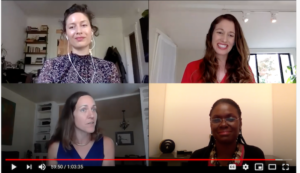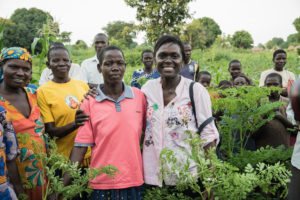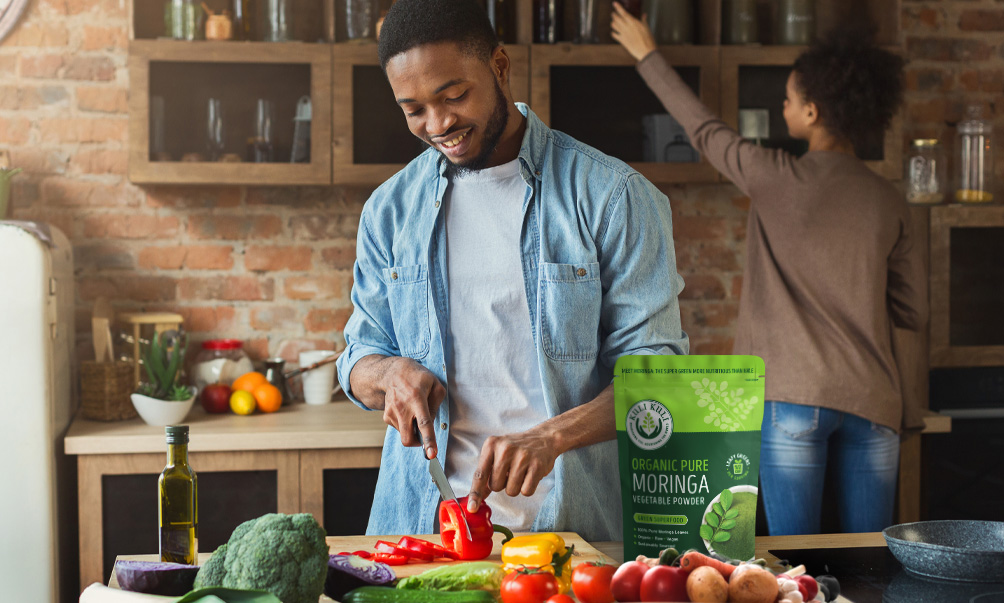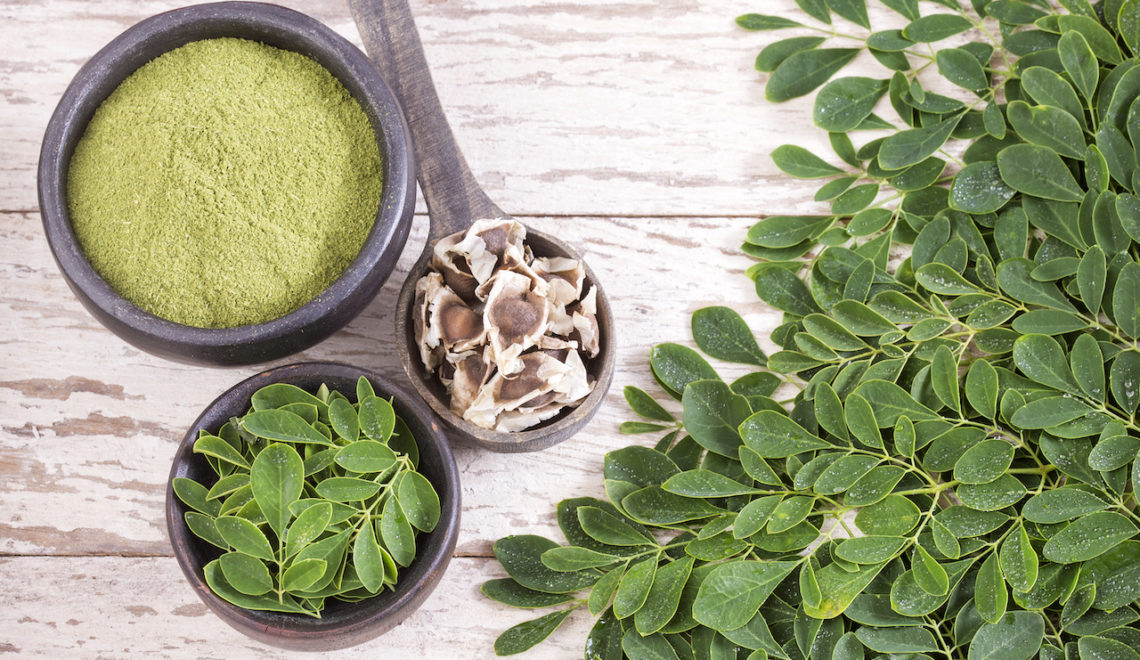In honor of Women’s Health Month this May, Kuli Kuli hosted a women’s health webinar with thought leaders, social entrepreneurs, and scientists from around the world. How are women reprioritizing their health and wellness while in lockdown? How can food can be used as functional medicine? What post-Covid changes are needed to continue a path towards gender equity and wellness?
Kuli Kuli founder & CEO Lisa Curtis hosted an incredible panel that included research scientist Dr. Carrie Waterman, clinical herbalist Rachelle Robinett, and social entrepreneur Pamela Anyoti Peronaci.
If you missed the webinar, Eating for Energy and Immunity: How Women Can Stay Healthy During COVID-19, you can watch it by clicking the link, or watching it below. We’ll provide a quick summary in this article too.
3 Takeaways from Our Women’s Health Webinar
This is a tricky time for women, families, and farmers around the world. We hope this webinar offers a bit of insight into how to balance health during challenging times, as well as insight into a more equitable future for both genders.
1. “Food as medicine” looks different around the world
With the pandemic, there is a lot of ongoing duties that women are bearing. Access to medicinal foods does not look the same in any two cities, let alone on different continents. Pamela Anyoti Peronaci, a social entrepreneur and Kuli Kuli moringa supplier, says that she’s working closely with farmers in Uganda right now, to make sure that they have the information they need to feel supported.
About 10 minutes into the webinar, Pamela explains how “in Uganda, women in rural areas do not have the same access to information. Eventually, they hear everything is locked down […] and it is an additional burden to the mothers, whose children are usually in boarding schools.”
These times rock families, and in particular, impact women’s roles as caretakers. Acknowledging this is a key part of moving towards greater women’s health efforts, especially for women who are navigating Covid times and caring for their children who are no longer in school.
Additionally, in rural Uganda, this concept of “food as medicine” looks different than it might in America. “Going back to indigenous knowledge” is a key part of how Pamela views holistic health during these times.
Thirty minutes into the webinar, Pamela also shares her favorite ways to cook with moringa—moringa “pesto” lasagna with pine nuts and cheese! Stay tuned for a recipe. Pamela is always developing new moringa recipes.
2. Phytochemicals matter—especially for greater immune system health
Dr. Carrie Waterman offers a clear summary of the role of phytochemicals, about 20 minutes into the webinar. Lots of people want to support their immune system, but don’t know how. Luckily, foods rich in phytochemicals can offer lots of nutrients.
“Phyto” means “plant,” so we can think of phytochemicals as the primary compounds that plants offer. A lot of those chemicals, ie., phytochemicals, evolved as a way to protect the plant from competition, UV rays, insect attacks, virus attacks, etc.
“Plants evolved these compounds, because as plants, you can’t run away,” Dr. Waterman jokes, “so plants make these compounds as a secondary defense, hence why they are sometimes called ‘secondary defense’ compounds.” When plants are rich in antioxidants, for example, it’s because they needed antioxidants as a species for their own UV protection. As Waterman explains, when we eat plants, “we take advantage of those plants and all those chemical defenses.”
The nutritional and phytochemical properties of moringa are one part of a much larger health puzzle. Moringa is unique in that it is very dense in the phytochemical composition they offer. If you’re curious about The Science Behind Nourishing Immunity, we offer a great article that explains phytochemicals more.
3. Post-pandemic times might force us into new essentials and priorities.
Around 50 minutes into the webinar, Rachelle Robinett offers inspiration as we start thinking about “better ways” to address health, especially women’s health, moving forward.
We are being “forced into new essentials, new basics, new priorities,” Rachelle articulates. “I hope that we are able to learn some of the essentials of self-care, health, and preventative medicine.” For people wanting to supplement their kid’s diets with herbs, and are struggling with that process, Rachelle also suggests trying different quantities of herbs or different plants.
“If it’s not raw garlic of spicy food, maybe it’s some parsley or some mint tea, or chamomile—chamomile is a really good one for kids,” Rachelle offers.
For more highlights, please watch our webinar below about women’s health, and eating for immunity during uncertain times.
Thank you to our greater Kuli Kuli community as we unite in our global health efforts across the world. Feel free to leave any questions or comments below!
Follow us @kulikulifoods to learn more about women’s health, immunity, and overall wellness.












If moringa leaves have so much vitamin c why does it seem to be absent from the moringa leaf powder? Is it removed so that you can sell other products with that vitamin c in them? Seems deceptive to me…..
Hi Brenda! Thanks for your question. Moringa is more nutrient-dense and has more Vitamin C than an orange, for example, on a gram per gram level. 1 gram of our moringa powder has 7x more Vitamin C than an orange. Hope this helps!